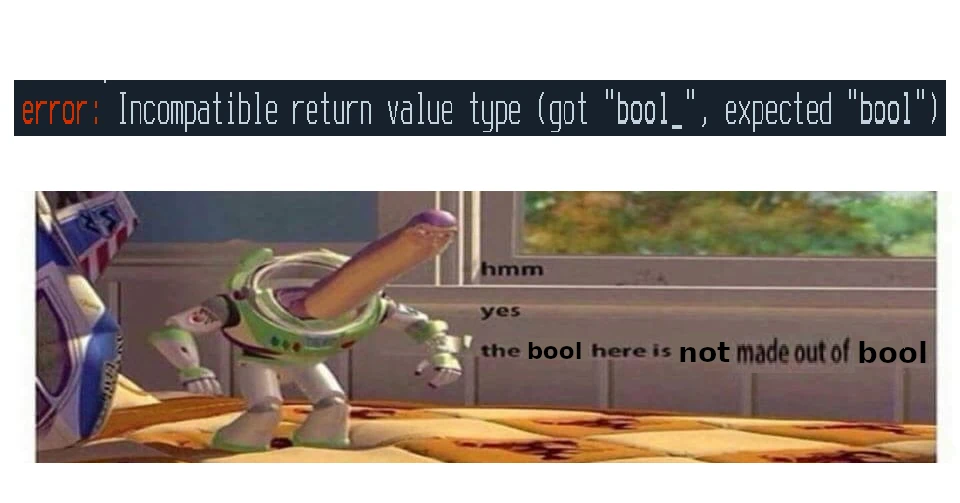this post was submitted on 14 May 2024
304 points (91.1% liked)
Programmer Humor
32503 readers
727 users here now
Post funny things about programming here! (Or just rant about your favourite programming language.)
Rules:
- Posts must be relevant to programming, programmers, or computer science.
- No NSFW content.
- Jokes must be in good taste. No hate speech, bigotry, etc.
founded 5 years ago
MODERATORS
you are viewing a single comment's thread
view the rest of the comments
view the rest of the comments

I am aware of what you are saying, however, I do not agree with your conclusions. Just for the sake of providing context for our discussion, I wrote plenty of code in statically typed languages, starting in a professional capacity some 33 years ago when switching from pure TASM to AT&T C++ 2, so there is no need to convince me of the benefits :)
That being said, I think we're talking about different use cases here. When I'm talking configuration, I'm talking runtime settings provided by a customer, or service tech in the field - that hardly maps to a compiler error as you mentioned. It's also better (more flexible / higher abstraction) than simply checking a JSON schema, and I'm personally encountering multiple new, custom JSON documents every week where it has proven to be a real timesaver.
I also do not believe that all data validation can be boiled down to simple type checking - libraries like pydantic handle complex validation cases with interdependencies between attributes, initialization order, and fields that need to be checked by a finite automaton, regex or even custom code. Sure, you can graft that on after the fact, but what the library does is provide a standardized way of handling these cases with (IMHO) minimal clutter. I know you basically made that point, but the example you gave is oversimplified - at least in what I do, I rarely encounter data that can be properly validated by simple type checking. If business logic and domain knowledge has to be part of the validation, I can save a ton of boilerplate code by writing my validations using pydantic.
Type annotations are a completely orthogonal case and I'll be the first to admit that Python's type situation is not ideal.